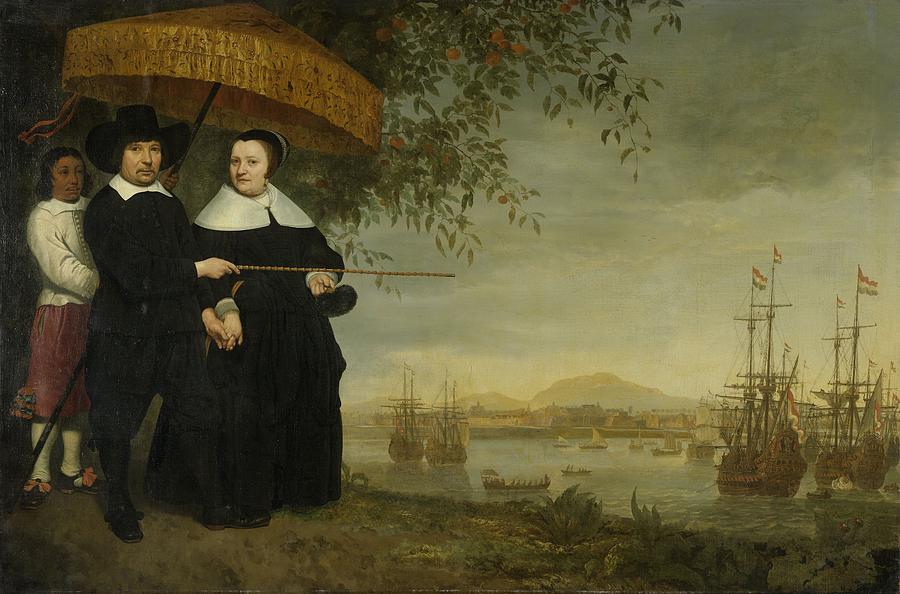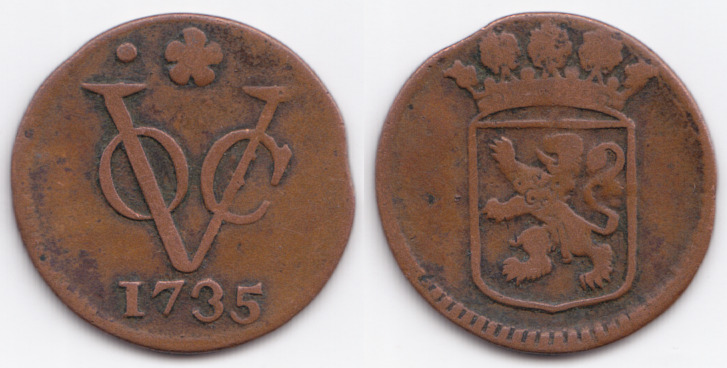Donald Trump, Paul Le Roux and the Dutch East India Company - Part 1

In January 2021, powerful tech companies Facebook, Twitter and Google moved to censor President Donald Trump. Whether or not DJT deserved this ban is irrelevant for the purposes of this essay. It is the sheer power of for-profit entities that is of interest. Tech companies were free to gag the sitting a head of state. The head of state of the most powerful country in the world. A man who, for all his flaws, won millions of votes and had a political mandate (at least on paper) to lead a superpower. This level of corporate power is unprecedented in our lifetimes, and it rang alarm bells amongst political leaders across the world. Even politically distant and moderate politicians, such as Angela Merkel, voiced their concern.
Today we see companies as entities that inhabit a different domain to states. States have sovereign rights and prerogatives, such as policing, legitimate use of force, minting money etc. Companies play within the rules set out by the states as profit maximising entities. Of course, we understand that the lines can be blurred: powerful companies can lobby states to change certain rules, regulatory capture and crony capitalism is part of the 21st century. But, as the story of Jack Ma shows us, at the end of the day it’s the state that has the men with guns. When push comes to shove not many companies would choose to defy a sovereign.
Outsourcing Empire
This was not always the case. In fact, as the book Outsourcing Empire shows, private companies played a key role in the globalisation of the world and were often granted what we would today consider sovereign powers. In other words, sometimes companies had men with guns too, and would engage sovereign states as equals. These companies were known as company states, and the most powerful of them effectively ran empires that were capable of engaging states in war.
How did for profit entities even think of raising armies? In the Middle Ages the delegation of sovereign rights and prerogatives was common due to the weakness of the central state. The heyday of this practice was in the 17th century, but elements of it lasted well into the 20th century. My own great-great grandfather, Federico Sobrado Carrera, was granted the state monopoly to issue his own currency, distill alcohol and have an armed police force in the 1920s as a wealthy landholder in a remote part of Costa Rica. Company states have played an important role in world history, both when they succeed, as the English East India company did when they took over India, but also when they failed. Debts resulting from the disastrous failure of the Darien company played an important role in the later unification of England with Scotland.
 Coin issued by Federico Sobrado Carrera, my great-great grandfather, authorised by the Central Bank of Costa Rica for use on his estate in Guanacaste
Coin issued by Federico Sobrado Carrera, my great-great grandfather, authorised by the Central Bank of Costa Rica for use on his estate in Guanacaste
The first IPO
What factors lead to the proliferation of company states in the age of exploration? First of all, it is the relative weakness between state actors and company states. For European sovereigns, company states were a way of acquiring empire on the cheap, without having to divert funds from state coffers to risky ventures. Moreover technological innovation in shipbuilding and weaponry allowed non-state actors to apply violence effectively against their enemies, be they states or pirates. Third, innovation in finance that allowed fundraising in a relatively decentralised way, without excessive sovereign intrusion was key for the formation of company states. Empire building is a risky, expensive business, and funds from multiple investors are needed to diffuse the risk. It is no coincidence that the Dutch East India Company was the first publicly listed company in the world. Lastly, because companies are for profit entities, they are capable of diplomatic flexibility in the way that European sovereigns were not. These shareholders had to be paid, and the way of paying them was by acknowledging the realities on the ground. For most of their existence, company states functioned as subordinates or equals to the Asian states, only taking a dominant position once the balances of power shifted.
 Coin issued by the Dutch East India Company
Coin issued by the Dutch East India Company
Where have all these company states gone? As European sovereign states got more powerful, their reach expanded and they started to meddle in the affairs of the company states. Already at the start of the company state heyday, states where the sovereign had a large say in the operations of the company states had far less successful company states (e.g. France vs UK and the Netherlands). Moreover, company states did a lot better in the Pacific than in the Atlantic, where they were shielded from sovereign meddling by distance. As European states started to grow more powerful and project more power at a distance it was increasingly hard for company states to remain diplomatically independent. Thus, dragged into empire building it became harder to be profitable and either went bankrupt (e.g. Dutch East India Company) or were absorbed by the state. Moreover, European consumers started rallying against the monopolies that subsidised the Company state armies. These monopolies were increasingly unenforced by the sovereign, and the Company states lost their revenues.
Paul Le Roux’s East India Company
What do you think it would look like in the 21st century if a company, using the newest technology and revenues from a profitable monopoly, were to raise an army? In Part II I’ll discuss Paul Le Roux’s attempt, who at the height of his operation he was running a global business which stretched from the Philippines to Brazil and included logging, money laundering, illegal gold mining, opioid dealing, piracy and an attempt to build his own sovereign state.